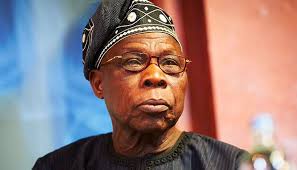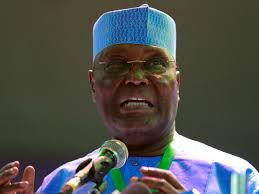Yoruba Ronu: How Tinubu’s Government marginalise Yoruba

By Babafemi Ojudu
I have pondered on this for a long time, and I must now give voice to it—before we are once again used and discarded, before we are called out, not to think, but to chant.
In less than two years, another round of elections will arrive. And, like clockwork, those who sit in power—feeling threatened—will summon a familiar refrain: “Yoruba Ronu!” Think, Yoruba, think! But is it really about thinking? Or is it just another ploy to manipulate and distract? If we were truly thinking, would our present condition not demand revolt rather than re-election?
Young and not-so-young Yoruba “activists” will be assembled like foot soldiers. Suddenly remembered by politicians who have ignored them for years, they’ll be equipped with smartphones, mobile data, and just enough pocket money to leave something behind for their families. In hastily arranged bootcamps, they will be briefed—not to build, not to brainstorm, but to insult opponents, smear fellow Nigerians, and threaten war in the name of ethnicity.
Our sacred deities—Oro, Alagemo, Aiyelala, Osugbo, Ifa, Ogun—will be invoked to strike perceived enemies. But the true enemies are the very people who weaponize identity and tradition to cover up incompetence, corruption, and betrayal. The ones who send these youths on errands of hate, while their own children are far away, safe, and prospering.
These so-called activists live among us. They face the same poverty, frustration, insecurity, and decay that the rest of us endure. The powerful men who parade themselves as the custodians of Oduduwa’s legacy do not care for them. They have no plans for them. The manifestos—when they exist—barely acknowledge them. They are mere tools, paid sloganeers, useful only during elections and discarded afterward.
And when more thoughtful Yoruba voices try to warn them, they respond with insults. These cautioning voices are labelled traitors—Judas—while the real betrayers walk free, adorned in agbada, smiling for the cameras. For a bowl of rice, a cheap phone, and a few thousand naira, they sell their future, their heritage, and the legacy of our noble progenitors.
They do not ask why the major contracts across Yorubaland are awarded to Lebanese and Chinese firms. They don’t question why the looted funds are deposited with banks whose executives cannot say kaaro ojiire. Or why the women hiding the stolen assets in their names are rarely of Ijebu, Egba, Akoko, Oyo, or Ekiti origin. These facts do not prick their conscience. I can give you a list of our serving or past governors who were in serious grief when not too long ago a top banker died in helicopter crash. He was not Yoruba but of an ethnic group you were taught to abuse.
When the “noisy elders” of various Yoruba groups become inconvenient, they are pacified with late-night invitations to government houses. There, they are wined and dined—only for one night. After lavish meals and lofty toasts to Yoruba greatness, they are sent home with N200,000 for transport and perhaps a N10 million contract. That’s all it takes. They go home satisfied, enough to feed their households for a few weeks.
Meanwhile, our public schools are ruins, our hospitals are lifeless, our roads are death traps. Our youth, without hope or guidance, have embraced Yahoo-Yahoo and Olosho as survival strategies.
What they don’t know is that, just minutes after they left the governor’s residence, a Chinese contractor in his 30s signed a N10 billion deal. The champagne they shared sells for N1 million per bottle. The contractor, barely literate in English—let alone Yoruba—flies back to import equipment and Chinese prisoners to execute the job. And these men, not our own engineers, accountants, and technicians, are the ones who get paid.
Our own graduates roam the streets with their CVs. Those lucky enough to hustle money from relatives become okada riders. It is from this pool of desperation that the next cycle of political thugs will be recruited. They will chant, dance, intimidate. Some will be arrested and forgotten in jail after the elections. Meanwhile, Chinese convicts live comfortably, executing multi-billion-naira contracts on our soil.
So I ask again: Is this Yoruba Ronu or Yoruba Ponu?
If it were truly Yoruba Ronu—if we were truly thinking—we would, by now, have replicated the Tewogbade & Sons, Oni & Sons, and other Yoruba-owned construction giants fostered by Awolowo and his visionary peers. They built estates, bridges, stadiums, hospitals—monuments that still stand as the only tangible symbols of development in Yorubaland.
Our present leaders ask us to defend them, but what have they built? They summon our whizkids at election time, but where is the “whiz” when it truly matters? Where is the innovation, the investment in our people, the inspiration?
It’s time we stopped confusing manipulation with mobilization, and big men with big thinkers. The real Yoruba Ronu lies in rejecting this cycle of deceit and demanding true development, dignity, and vision. Until then, sadly, it is Yoruba Ponu.



